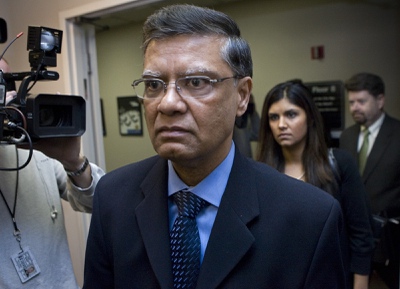Saturday, Jan. 2, 2010 | 2 a.m.
Related stories
- Report shows how Dipak Desai put profits ahead of safe practices (12-22-2009)
- Report on Las Vegas Hepatitis C outbreak released (12-21-2009)
- Targeting insurers’ deep pockets (12-18-2009)
- Police ask DA to seek criminal neglect charges against Desai (11-19-2009)
- Police probe of clinic cases in hepatitis outbreak nears end (11-16-2009)
- Bankruptcy trustee: Leave the hepatitis claims to us (11-13-2009)
- Regulation in need of a checkup (10-25-2009)
Sun Coverage
For all the health concerns triggered by the hepatitis C outbreak nearly two years ago, another matter related to the medical scandal has yet to be resolved: an investigation into possible insurance fraud.
The ongoing investigation is the largest of its kind undertaken by the Nevada attorney general’s office.
Several sources have said the clinic that caused the outbreak, Endoscopy Center of Southern Nevada, made a habit of overbilling insurance companies.
The Southern Nevada Health District said as much in its recent final report: “Staff members reported that anesthesia times were intentionally recorded incorrectly for the purposes of obtaining additional reimbursement ... Times for procedures shorter than 30 minutes in length were typically reported as 31 or more minutes,” which triggered larger payments to the clinic.
Sources at the clinic, which was majority-owned and run by Dr. Dipak Desai, a former president of the Nevada State Board of Medical Examiners, have told the Sun the same thing. One nurse said every procedure was billed for at least 30 minutes of anesthetic.
In a malpractice lawsuit against Dr. Clifford Carrol, one of the clinic’s owners, court documents showed certified nurse anesthetist Ronald Lakeman documented 31 minutes of anesthesia time — even though the patient’s procedure lasted just eight minutes.
Las Vegas anesthesiologist Dr. Joseph Schifini, who reviewed the Endoscopy Center’s anesthesia records, said 31 minutes of anesthesia time was highly unlikely for an eight-minute exam. Lakeman had noted in a medical record that he monitored the use of anesthesia 25 minutes after the intravenous catheter was removed by a recovery nurse, Schifini said.
The 31 minutes is significant because anesthesia is billed to insurance companies in 15-minute increments, Schifini said, allowing the Endoscopy Center to bill for three 15-minute time frames because of the extra minute.
(The patient won a $2 million settlement in the case in March 2008, but later died from colon cancer that Carrol allegedly missed in the hurried examination. It’s estimated, based on records in the case, that the doctor took only three minutes to examine the man’s colon, less half the minimum time experts say is necessary for an exam. Carrol did not return calls for this story, but is still working in hospitals in Las Vegas.)
Desai’s clinic caused the outbreak when nurses reused syringes and single-use medicine vials. It had been the go-to colonoscopy center for Las Vegas for years. It was a high-volume center that dealt with dozens of insurance companies.
Prosecuting insurance fraud is a complex matter, said Brian Kunzi, director of the insurance fraud unit for the attorney general’s office.
“We have to examine literally tens of thousands of patient records and cross reference them with billing records,” Kunzi said. “It is a rather tedious process.”
Investigators have to determine whether there were billing mistakes, or intentional wrongdoing, and who was responsible, Kunzi said. Then they need to understand the scope of the behavior, and have the documentation to back it up.
“It’s not an issue we’re ignoring,” Kunzi said. “And I do appreciate that (two years) seems like a long time. But in the scope of these types of investigations, this is not long.”


Join the Discussion:
Check this out for a full explanation of our conversion to the LiveFyre commenting system and instructions on how to sign up for an account.
Full comments policy